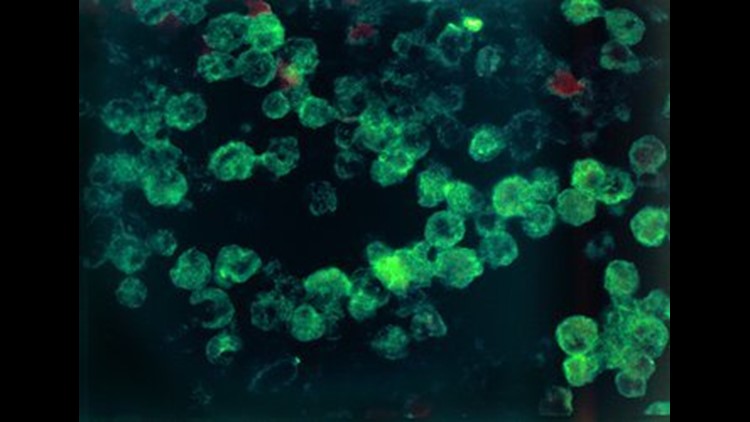(CNN) — Brain-eating amoebae were found in DeSoto Parish, Louisiana, where a 51-year-old woman died from an infection in 2011, the Louisiana Department of Health and Hospitals said.
The parish’s Waterworks District No. 1 — one of 14 systems in the parish — was to flush its system with additional chlorine Wednesday to kill the amoeba, the department said in a release Tuesday.
Residents, over the next two months, “may notice a change in the smell and taste of the water throughout the chlorine burn. However, the water will remain safe to drink,” the department said.
The state selected the district’s water for additional testing because of the 2011 death. After the Naegleria fowleri amoeba was detected last month in St. Bernard Parish near New Orleans — and linked to the August death of a 4-year-old boy — the state tested DeSoto Parish’s water as a precautionary measure.
The district serves almost 5,000 customers in DeSoto Parish, which includes the city of Mansfield, south of Shreveport.
The Centers for Disease Control and Prevention confirmed the amoeba’s presence; there are no known current illnesses reported in the state.
“Families can take simple steps to protect themselves from exposure to this (amoeba), the most important being to avoid allowing water to go up your nose while bathing or swimming in a pool,” state health officer Jimmy Guidry said in the release. “It is important to remember that the water is safe to drink; the (amoeba) cannot infect an individual through the stomach.”
The first symptoms of primary amoebic meningoencephalitis appear one to seven days after infection. They include headache, fever, nausea, vomiting and a stiff neck, according to the CDC.
“Later symptoms include confusion, lack of attention to people and surroundings, loss of balance, seizures and hallucinations,” the CDC website says. “After the start of symptoms, the disease progresses rapidly and usually causes death within one to 12 days.”
The state released a list of precautions residents could take to lower their risk of infection.
Among them: Don’t allow water to go up your nose while swimming, bathing or washing your face; lower yourself carefully into tubs and pools to avoid splashing; avoid playing in sprinklers or on Slip ‘n Slides; run taps for five minutes before use; use boiled or distilled water for sinus rinse solutions and neti pots; and be sure to keep swimming pools and hot tubs disinfected.
Officials say the Mississippi 4-year-old who died in St. Bernard Parish in August had been playing on a homemade waterslide made of a long sheet of plastic when he contracted amoebic meningoencephalitis.
In 2011, a woman, 51, in DeSoto Parish and a 20-year-old man near New Orleans died after rinsing their sinuses with neti pots, the Department of Health and Hospitals said.
Officials say fewer than 1% of patients survive the deadly brain infection caused by the amoeba, but an experimental drug from the CDC has shown promise in fighting it.
Kali Hardig, a 12-year-old in Arkansas, survived after contracting the amoeba in July, possibly at a Little Rock, Arkansas, water park.



